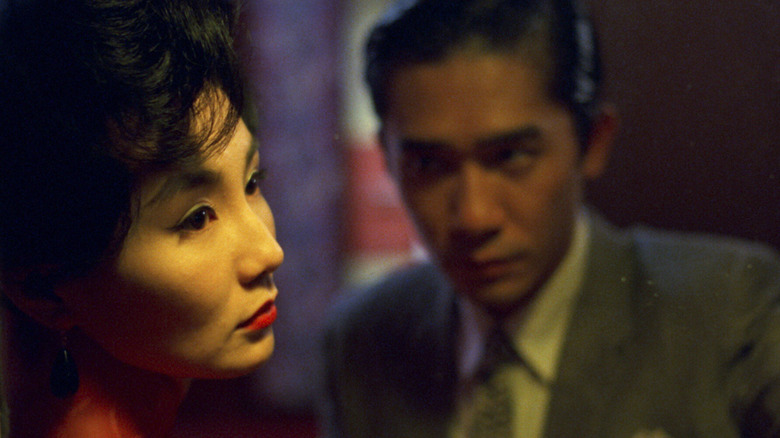
Hello, old friend. Here we are, you and me, on the last page. Yes, this will be my last Pop Culture Imports column, as I will be leaving /Film for another job. So I thought a good way to end this column would be to take a look back at my favorite titles that I've featured here.
I started this column as a way to better shine the spotlight on international movies and TV shows that I was worried would get buried amid an increasingly crowded streaming market. But it was also a way for me to express my love for the Chinese action movies that I watched from behind my parents' shoulders, the animes that were my guilty pleasures, the K-dramas that were suddenly getting crossover success. I didn't want to lose those building blocks of my love for movie and TV, so Pop Culture Imports became a diary of sorts — international movies and shows that I wanted to share with others, many of which I was seeing for the first time too.
So I narrowed down the titles that made the biggest impact on me, or that I was excited to discover and wanted others to do the same.
For one last time, let's fire up those subtitles and get streaming.
Terrace House
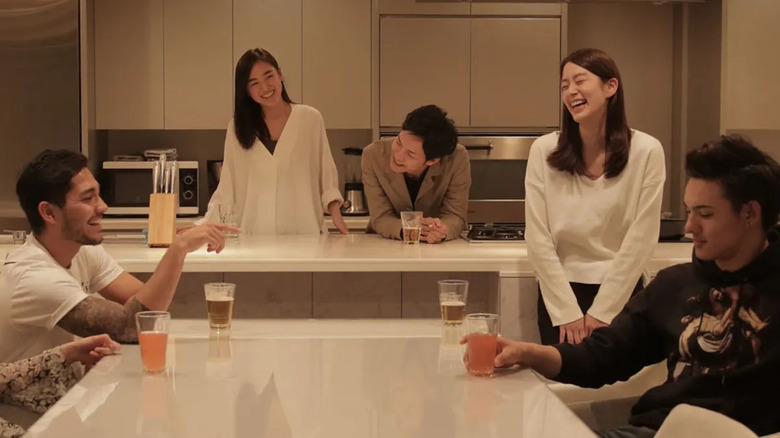
I wrote: "Terrace House" is a reality show about nothing. And that's what makes it so amazing. An unscripted show about three men and three women living in a plush minimalist house together, "Terrace House" sounds like it takes cues from trashier American counterparts like "The Real World." But it has more in common with a nature documentary than it does with its bombastic American cousins.
That's because "Terrace House" has a warm heart beneath its voyeurism. Gone are the talking heads and flashy sound effects of American reality TV. The camera simply rolls as life goes on in the house, where housemates have stilted social interactions, awkward flirtations, and occasional passive-aggressive clashes. Sometimes, they even hold hands! And all the action (or non-action) is observed by a panel of actors, comedians, and MCs, who overanalyze every dialogue exchange and mine them for meaning. While at first the presence of an "after show"-style panel during the episode can be jarring, it becomes essential when all the drama happens beneath the surface.
Final thoughts: So nice, I wrote about it twice (or maybe three times). "Terrace House" is part of the reason I started Pop Culture Imports because I could not stop talking about this strangely mundane reality show. Despite all the controversies and tragedies that have hit the show since, it still holds a special place in my heart.
In The Mood For Love
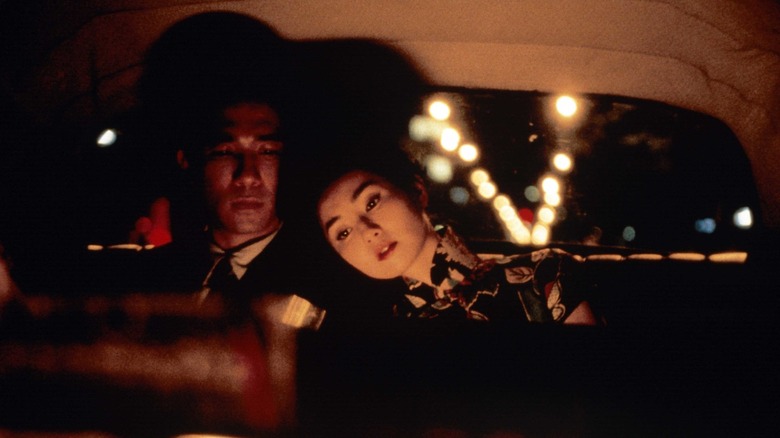
I wrote: Wong Kar-wai's gorgeous 2000 romantic drama is a sensuous — and sensual — display of restraint, and a visual flex from a master of his craft. The use of color so striking. The smallest gestures so tender. Set in 1962 Hong Kong, "In the Mood for Love" follows the relationship of a married woman and a married man who move in next door to each other and slowly realize that their spouses are having affairs with each other. Rather than confront their significant others, they try to come to terms with the infidelity by re-enacting how they think the affair began, the film slowly drifting in and out of their play-acted imagination and their actual growing bond.
Watching "In the Mood for Love" is like having a handsome man croon to you in the world's tiniest café. Mrs. Li-zhen (Maggie Cheung) and Mr. Chow (Tony Leung) are two inhumanly beautiful people whose sexual chemistry is palpable, and yet would never be allowed, or could never allow themselves, to act on their urges. Thus, the entire melancholic film is a a series of yearning glances and missed connections, all enveloped in Wong's warm, sumptuous visuals.
Final thoughts: "In the Mood for Love" was the first Wong Kar-wai film I saw, and it was a life-changing one. A dreamy two-hour exercise in yearning, "In the Mood for Love" opened my eyes to a different kind of filmmaking to fall in love with, one where character and emotion superseded plot. Many have tried, but no one has done it quite like Wong Kar-wai.
The Castle Of Cagliostro
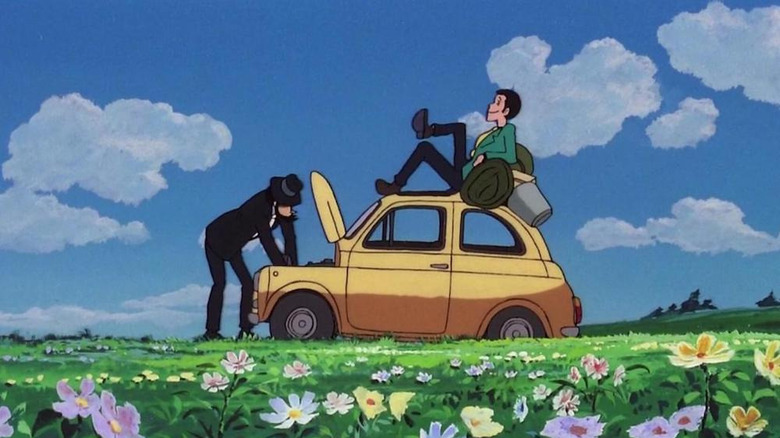
I wrote: "The Castle of Cagliostro" is chock full of vibrant characters and heart-pounding action, set against a dreamy fantastical backdrop that expertly blends European architecture with Japanese culture. There's actually a term for it that was coined after Miyazaki created the richly realized world within "The Castle of Cagliostro:" "akogare no Paris," literally "The Paris of our dreams" in Japanese, which describes a fantastical view of Europe "through Eastern eyes." It's a visual style that Miyazaki would constantly return to throughout his films, and just one of his trademark flairs that you can see him experimenting with in his very first film.
Final thoughts: Knowing Miyazaki's filmography backwards and forwards is nothing when you haven't seen his first feature film. So seeing "The Castle of Cagliostro" when it finally hit streaming was a momentous occasion for me — allowing to see where my favorite filmmaker came from, and exactly what he brought with him from his very first film.
Honeyland

I wrote: "Honeyland" has the rare honor of being nominated for both best documentary and best international feature — a first for any film. But this meditative Macedonian documentary that follows the life of Hatidze Muratova, a lone beekeeper who lives peacefully with her bedridden mother in a remote mountainous village until a rowdy nomadic family moves in next door, fully deserves that double nomination. Directed by Tamara Kotevska and Ljubomir Stefanov, who shot the film over the course of three years and compiled more than 400 hours worth of footage, "Honeyland" hardly feels like a documentary but rather like a piece of cinema verité, as if Kotevska and Stefanov had stumbled upon this beautiful, untouched corner of the world. Originally intended as a government-supported documentary, "Honeyland" pays its due attention to the effects of climate change and how the fast pace of civilization can damage the world's depleting resources, but ends up being a sad and lovely little fable of a lonely woman whose greatest struggle is with the ravages of time.
Final thoughts: "Honeyland" is the type of film I started this column for — the kind that would have gone completely unnoticed if it weren't for awards attention (it was the first documentary to score an Oscar nomination for Best International Feature). I basically stumbled upon "Honeyland" myself and was completely blown away by this real-life story that played out like part fable, part cautionary tale. If I could have put this film on any readers' radar, I will have fulfilled my goal.
Les Diaboliques
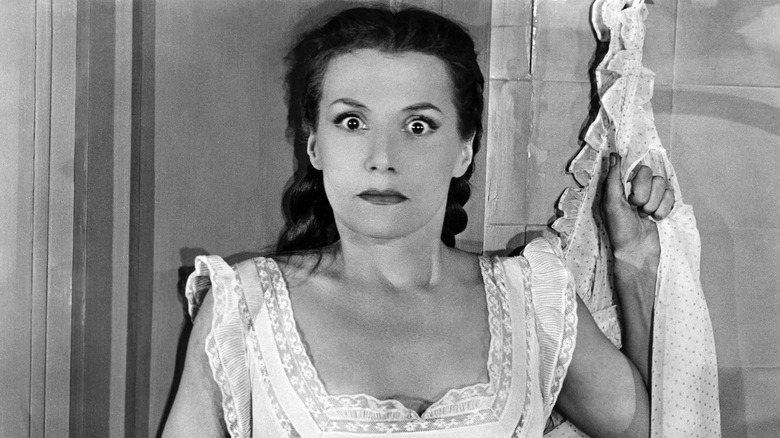
I wrote: "Les Diaboliques" is the best suspense movie that Hitchcock never directed. And that similarity is not coincidental — the British filmmaker had apparently been interested in adapting "She Who Was No More," the psychological suspense novel by Boileau-Narcejac that was the basis for "Les Diaboliques", before Henri-Georges Clouzot beat him to optioning the screenplay rights. But it would come full circle: "Les Diaboliques" and its tense, terrifying twist would end up inspiring Hitchcock's "Psycho," with "Psycho" author Robert Bloch even citing Clouzot's film as his all-time favorite horror film. And oh, what a bone-chilling, knock-the-breath-right-out-of-your-body twist it is. It comes at the end of a film that builds and builds on a feeling of dread, looming over the murder plot between a frail woman (Véra Clouzot) and her husband's steely mistress (Simone Signoret) who conspire to murder her abusive husband (Paul Meurisse). It's a perfectly creepy psychological horror film that sprinkles in just the right amount of double takes and things that go bump in the night.
Final thoughts: After you've watched enough movies, it's rare to be surprised by them. But this 1955 film managed to take me completely by surprise, and appeal to the Hitchcock lover in me at the same time. Fitting, since it was the movie that Hitchcock wasn't able to make.
Neon Genesis Evangelion
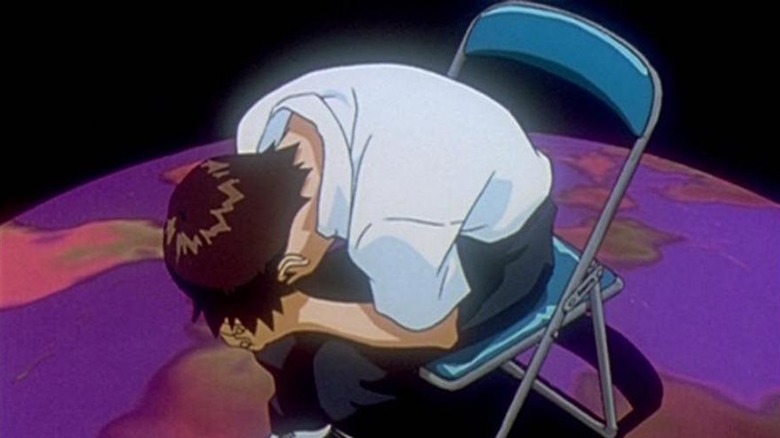
I wrote: One of the densest, most divisive anime series ever made, it would be nearly impossible to summarize "Neon Genesis Evangelion" in a short paragraph. So I'll go with your most basic plot synopsis: Set 15 years after the world has been rocked by a cataclysmic event, a teenage boy named Shinji (Megumi Ogata) is recruited by his father to pilot a giant bio-machine mecha called an "Evangelion" to ward off invading alien beings called "Angels." What seems at first to be a typical mecha anime evolves into one of the most emotionally grueling, abstract deconstructions of the genre and explorations of the concept of the self and soul. Laden with Judeo-Christian imagery and shot in stunning cinematic fashion, "Neon Genesis Evangelion" is probably the closest we get to watching creator Hideaki Anno having a nervous breakdown in real-time. And yet, despite the endless barrage of hopeless imagery and healthy doses of navel-gazing, "Neon Genesis Evangelion" is an ultimately hopeful and cathartic series about self-acceptance. At least, that's how I'm choosing to read it.
Final thoughts: "Neon Genesis Evangelion" is one of those seminal anime series that I had never watched — and now that I have, will probably never watch again. But its impact is unmistakable, its dense narrative impeccable, and its original series ending is one I will defend. It's not just about running out of a budget, it's about a man's embrace of his own self-worth and his own life. Any other additions or new endings are just gravy.
Volver
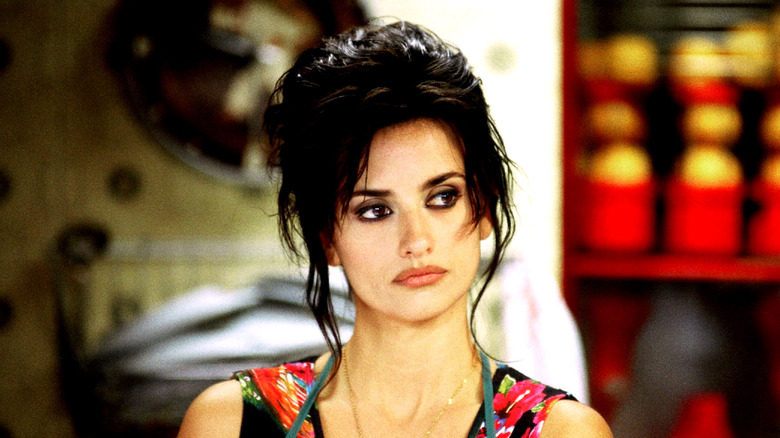
I wrote: "Volver" stars Penélope Cruz in a career-best role as Raimunda, a mother who works and lives and Madrid with her husband Paco and daughter Paula, and along with her flighty sister Sole (Lola Dueñas), worries over the health of her aging aunt, who is convinced that their recently-deceased mother Irene (Carmen Maura) is still alive, despite having died several years ago in a house fire with their father. But something strange may be afoot in Madrid, which is experiencing a mystical seasonal wind that Raimunda is convinced is driving people mad. Soon a murder and a family tragedy rocks Raimunda, Paula, and Sole's life, and their mother Irene unexpectedly returns to from the dead to help her daughters heal from past wounds. It's incredible how buoyant "Volver" is for a film that deals with grief and murder, blending farce, tragedy, melodrama, and a splash of magical realism in a multigenerational drama about the connections that bind us and the ghosts that haunt us. It's abundantly clear with every vibrant, richly colored frame of "Volver" just how much Pedro Almodóvar loves women. He worships them and paints them with a flattering, loving, brightly colored brush in his most deeply humanistic masterwork.
Final thoughts: The only male director allowed to make movies about women is Pedro Almodóvar.
Cronos
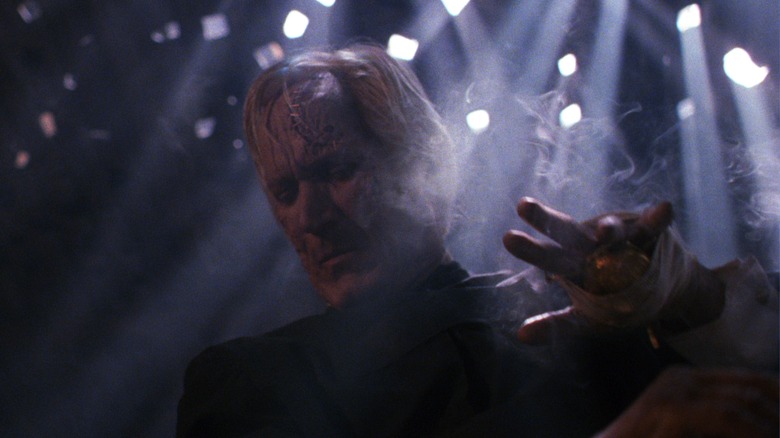
I wrote: Guillermo del Toro came out of the gate swinging with his debut feature, a gory Hitchcockian wrong-man thriller meets Cronenberg body horror. "Cronos" follows an unusual protagonist played by Federico Luppi who stars as Jesús Gris, an elderly antique store owner who happens upon a strange object in his store hidden inside a cockroach-infested archangel statue. While investigating the strange golden scarab, the device pierces his hand and Jesús finds his body begin to change. His wrinkles disappear, his energy returns, and he feels like a man decades younger — albeit, a man with a thirst for blood. But Jesús's discovery of this device makes him the target of dying businessman Dieter de la Guardia (Claudio Brook) and his hot-tempered nephew Angel (Ron Perlman), who have been searching for this key to immortality for years. A unique twist on the vampire genre, "Cronos" is full of big thrills and setpieces, along with some gnarly prosthetics and truly unhinged performances.
Final thoughts: Another director whose later works I love dearly, but whose early films were a mystery to me. This column gave me an excuse to go through Guillermo del Toro's early filmography, back to his first feature film, "Cronos." It's a dark and slightly nasty twist on the vampire film, a cautionary tale about the follies of seeking out immortality, and a fascinating first outing for del Toro, whose works would maintain that darkness but earn a romanticism throughout his career. That's why I believe in cinema.
Infernal Affairs
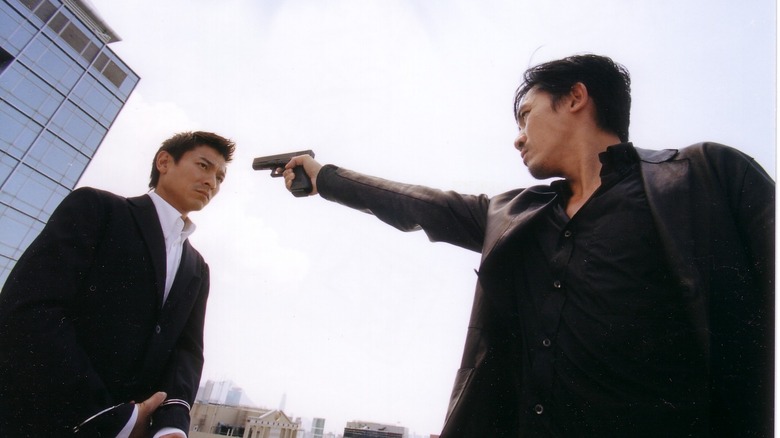
I wrote: Have you ever wondered whether the Hong Kong crime drama that inspired Martin Scorsese's "The Departed" was any good, but were slightly put off by the corny title? I don't blame you, but it would be a shame if you delayed watching "Infernal Affairs" any longer, because it is a doozy of a Hong Kong gangster flick. Starring Tony Leung as an undercover police officer who infiltrates a triad (Leonardo DiCaprio's role in "The Departed"), and Andy Lau as a mole in the police force working for the same gang (Matt Damon's counterpart), "Infernal Affairs" is a dizzying, twisty crime drama that still manages to play out its edge-of-your-seat thrills even if you're deeply familiar with the beats of Scorsese's gangster flick. While its operatic emotion can get feel a little overwrought for the Western viewer, "Infernal Affairs "far outpaces "The Departed" in terms of emotional resonance. Coupled with tremendous performances by both Leung and Lau (the latter of which is far superior to Damon's charmless turn), "Infernal Affairs" might just edge out "The Departed."
Final thoughts: I must speak my truth: "Infernal Affairs" is better than "The Departed."
RRR
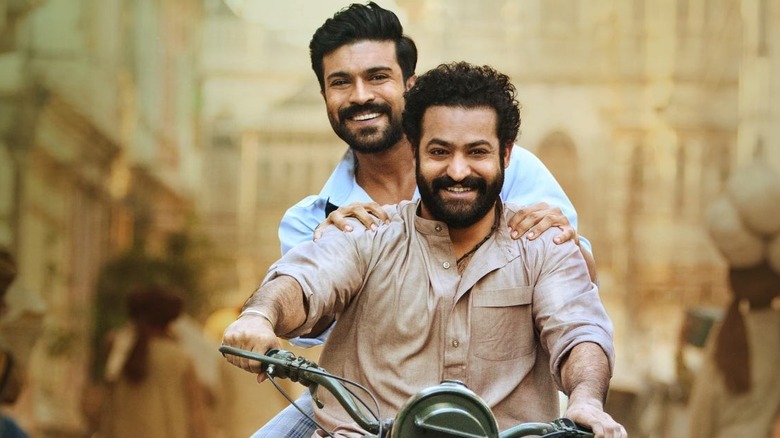
I wrote: What more can be said about "RRR"? The maximalist action epic is so gloriously exuberant and visually extravagant that it puts Hollywood blockbusters to shame. S. S. Rajamouli's global crossover hit is a dozen movies in one, yet beneath all its glistening machismo and cartoonishly heightened action, there lays a pure soul and an earnest affinity for melodrama. Plus, this is a movie where two men, who bonded over the sheer power of their shared masculinity, perform an insane dance number that basically brings down British colonialism. Anti-imperialist epics were never so awesome.
Final thoughts: Like I said, what more can be said about "RRR"? A movie so keen on throwing everything that it can at the screen that it threatens to alter your brain chemistry, "RRR" is a movie that transcends the kind of tiny spotlight I could've given it in this column. It's a movement, it's the moment. It will likely be the gateway movie for many people into the world of Indian cinema. Will it be the watershed moment for Indian films like "Parasite" was for Korean cinema? Maybe, maybe not, but we'll be talking about "RRR" for a long time.
Read this next: The Best Movies Streaming Right Now: Malignant, A Hero, And More
The post Pop Culture Imports: A Look Back at the Best Foreign-Language Movies and TV Featured on This Column appeared first on /Film.
0 Commentaires